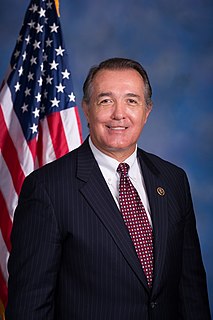A Quote by Michael Ignatieff
After spending the 1980s building up Saddam's Iraq as a counterweight to Iran, U.S. policy abruptly reversed course with his invasion of Kuwait and has since tried to cut him down to size. The policy is called 'containment,' but the question is, containment of what?
Related Quotes
In fact, five years ago, after Saddam ejected the UN inspectors, John McCain and I gave up on containment and introduced the Iraqi Liberation Act, which, when it became law, made a change of regime in Baghdad official US policy. You might therefore say that, when it comes to Iraq, President Bush is just enforcing the McCain-Lieberman policy.
After the revolution of 1979, Iran embarked on a policy of sectarianism. Iran began a policy of expanding its revolution, of interfering with the affairs of its neighbors, a policy of assassinating diplomats and of attacking embassies. Iran is responsible for a number of terrorist attacks in the Kingdom, it is responsible for smuggling explosives and drugs into Saudi Arabia. And Iran is responsible for setting up sectarian militias in Iraq, Pakistan, Afghanistan and Yemen, whose objective is to destabilize those countries.
I believe if Mr. Obama is reelected, and Israel somehow is unable to interdict the Iranian nation from gaining nuclear weapons themselves, this administration unfortunately, I'm afraid, will allow Iran to gain a nuclear weapon and then pursue what they believe would be the traditional policy of containment.
The Bush administration actually started out with an open mind towards Iran, by all indications. In fact, early in the administration, the White House tasked the various agencies of government to do an inter-agency review of Iran policy, as it did with Iraq policy and most of the big areas of the world.
Former Vermont Governor Howard Dean was all smiles, well smirks, after picking up the endorsement of former Vice President Al Gore at a rally in Harlem ... Gore went on to praise Dean for taking a tough anti-war stance before the invasion of Iraq and he praised Dean supporters in hopes that will ease his concerns over lack of foreign policy experience, and his lack of support among blacks and Latinos, and his hot temperament, and perceived arrogance, and policy flip-flops, and campaign glitches. Well, there's a lot going on here.
President George H. W. Bush soon launched Operation Desert Shield, sending an enormous contingent of troops to Saudi Arabia. But once there, what exactly were they to do? Contain Iraq? Attack and liberate Kuwait? Drive on to Baghdad and depose Saddam? There was no clear consensus among foreign policy advisers or analysts.
There's no telling what might have happened to our defense budget if Saddam Hussein hadn't invaded Kuwait that August and set everyone gearing up for World War II. Can we count on Saddam Hussein to come along every year and resolve our defense-policy debates? Given the history of the Middle East, it's possible.
In the 1950s, Pakistan allied with the United States in something called the Central Treaty Organization. We were lined up with, at that time, Iran, ruled by the Shah, and Pakistan and Turkey as a southward shield against Soviet expansion toward the warm waters of the Indian Ocean and the Persian Gulf. It was part of the containment strategy.
For the last eight years, American policy toward Iraq has been based on the direct threat Saddam poses to international security. That threat is clear. Saddam's history of aggression leaves little doubt that he would resume his drive for regional domination and his quest for weapons of mass destruction if he had the chance.


































